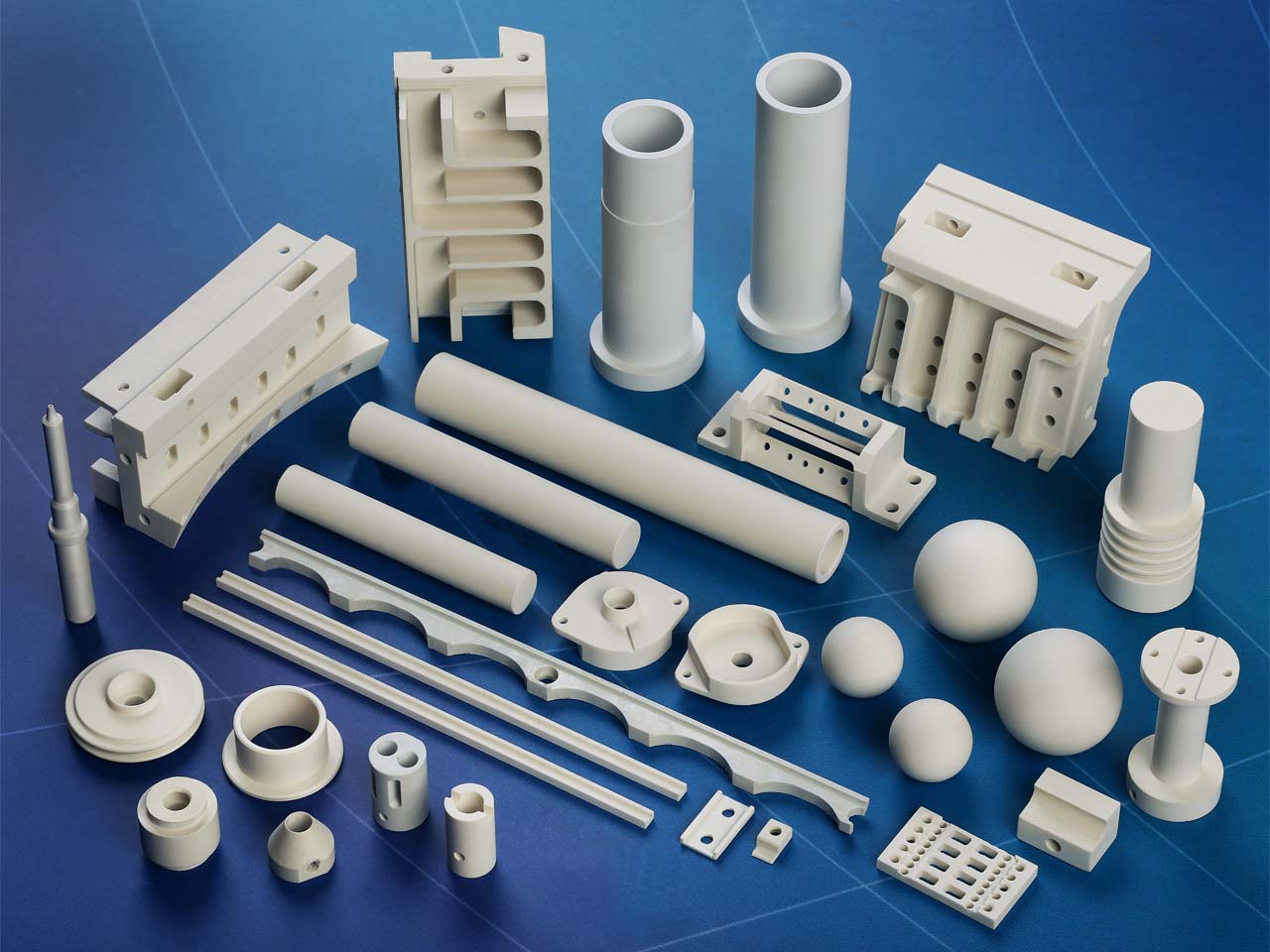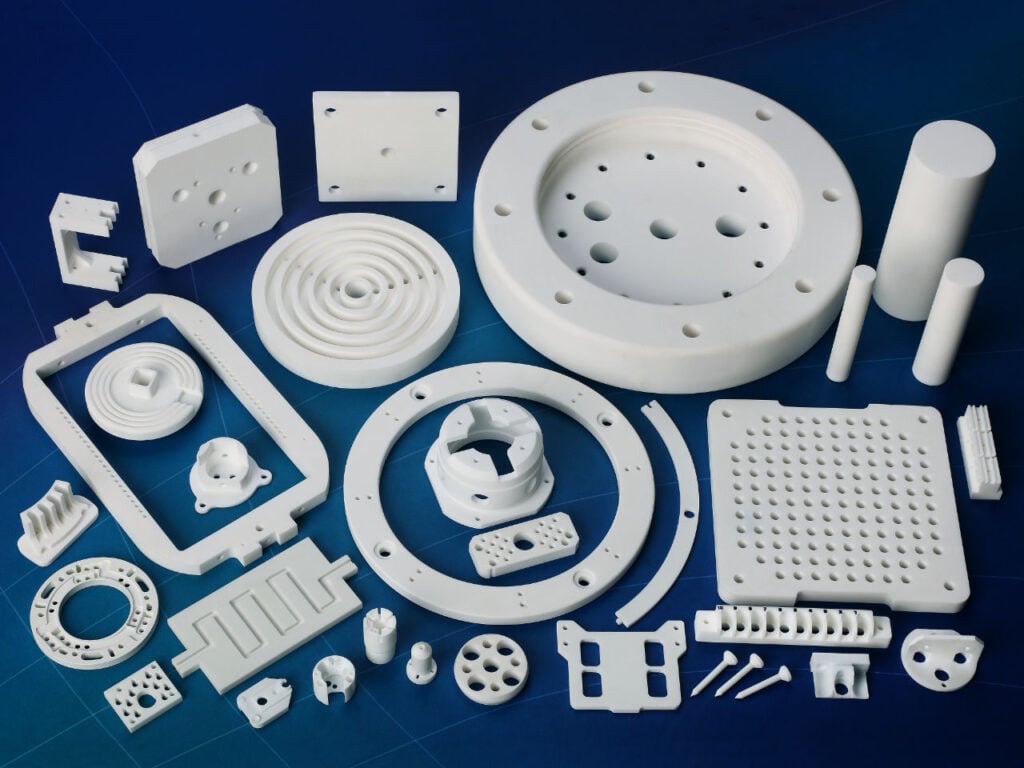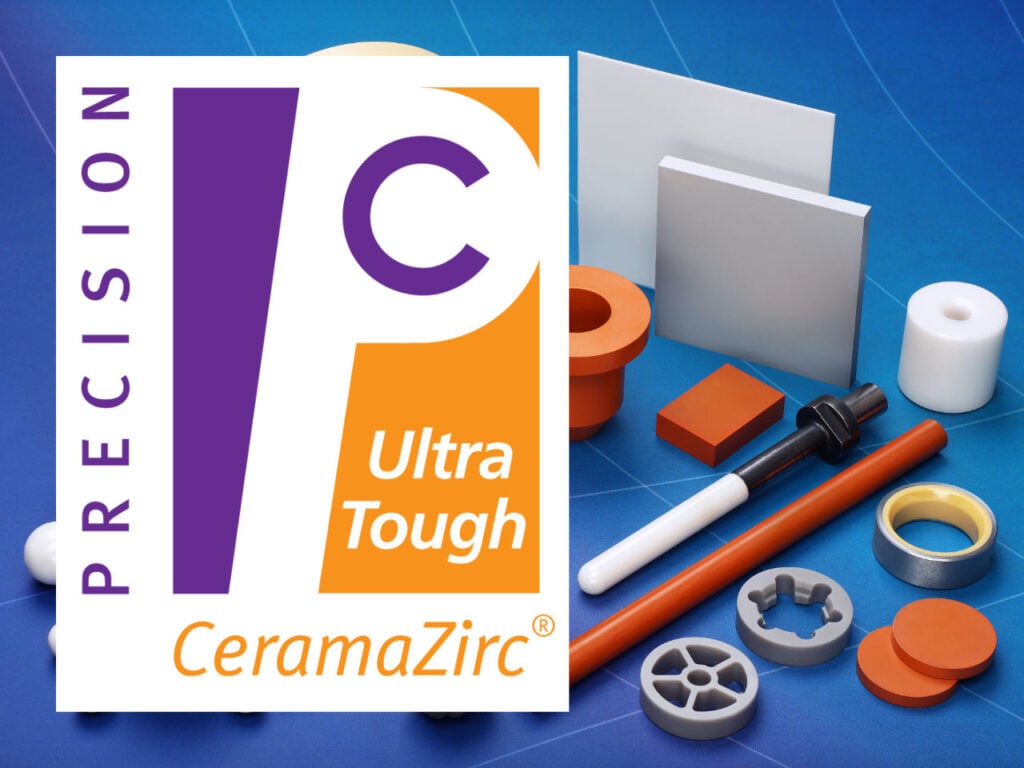Thermal Expansion
Important Materials for Thermal Expansion
(CTE 25°C ➞ 400°C)

Aluminium Nitride (AlN) – CeramAlum™ PCAN1000
4.5 [10-6/K]
PCAN1000 is our standard high purity aluminium nitride with a thermal conductivity of 170 W/ (m.K). This is the same thermal performance as our substrate material but offers the possibility of larger pieces in length and width and in thicknesses up to 30mm.
Details

Shapal Hi M Soft™ - Machinable AlN
4.8 [10-6/K]
Shapal Hi-M Soft is a hybrid type of machinable Aluminium Nitride (AlN) ceramic that offers high mechanical strength and thermal conductivity.
Details

Alumina (Al2O3) – CeramAlox™ Ultra Pure
7.5 [10-6/K]
CeramaAlox Ultra Pure is a very high purity (99.95%) grade of Alumina (Aluminium Oxide) exhibiting an exceptional combination of mechanical and electrical properties.
Details

Macor® – Machinable Glass Ceramic
9.3 [10-6/K]
Macor is a hybrid glass-ceramic with the versatility of a high performance polymer, the machinability of a metal, and the performance of an advanced advanced ceramic.
Details

Zirconia (ZrO2) - CeramaZirc™ Ultra Tough
10 [10-6/K]
CeramaZirc Ultra Tough is an advanced zirconia-based ceramic composite material based on partially stabilized zirconia and alumina platelets.
Details
Ceramic Material Comparison Chart
Related Properties

Thermal Conductivity
Thermal conductivity measures how easily heat is transmitted through a material. There is a growing specialist market for advanced ceramics use in applications with high thermal conductivity requirements.

Maximum Temperature
Advanced ceramics are well known for their heat withstanding properties in which they only start to melt at temperatures around 2000℃. In comparison to more common ceramic materials such as tile or brick, they start to melt at temperatures around 650℃.

